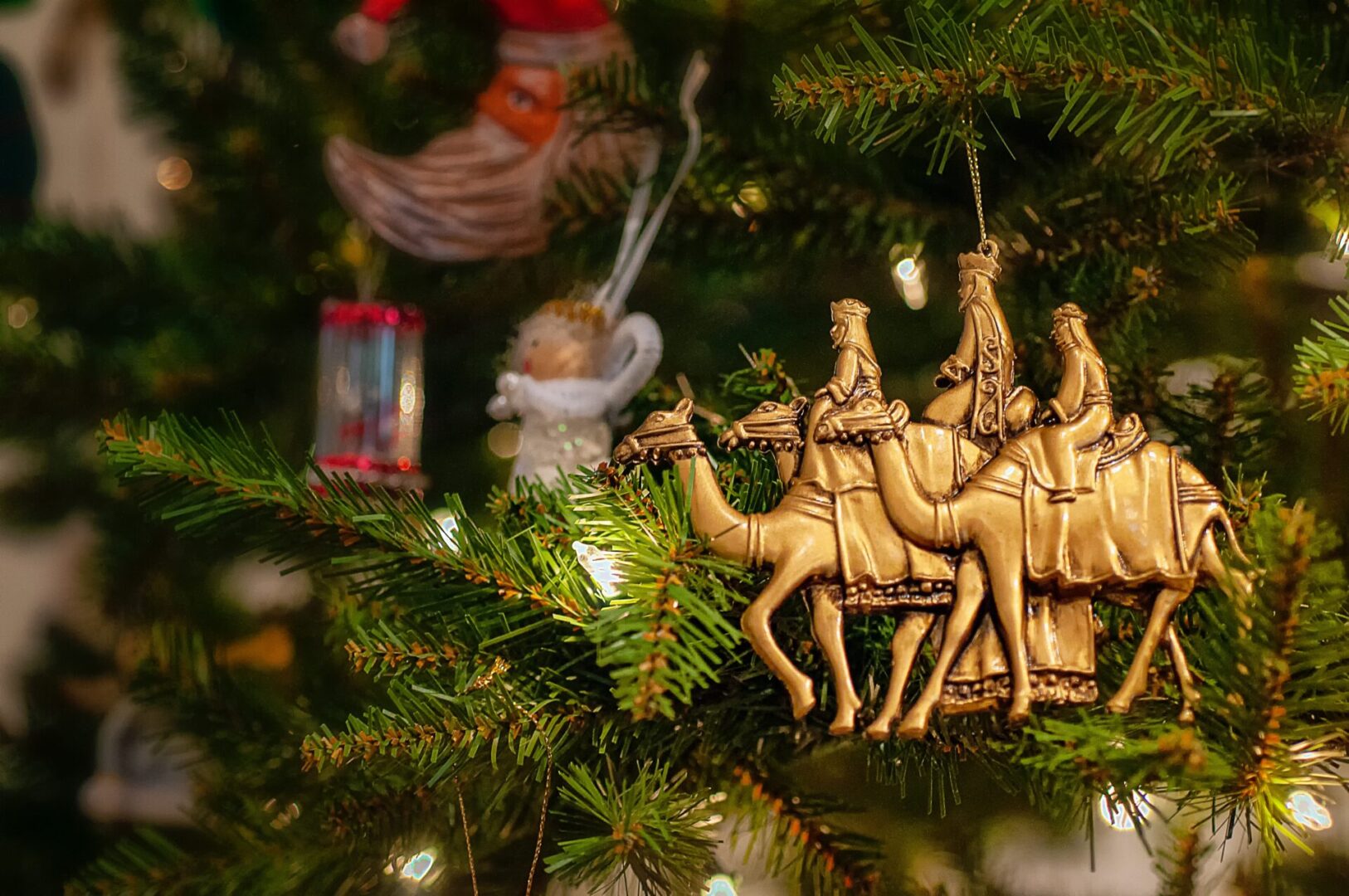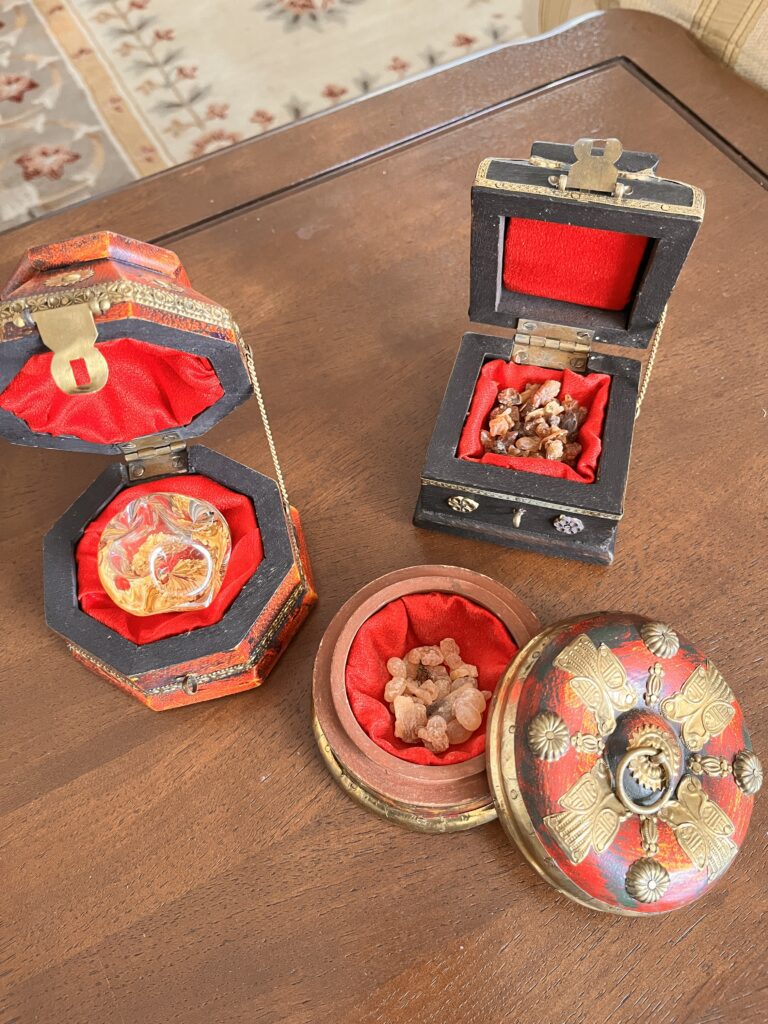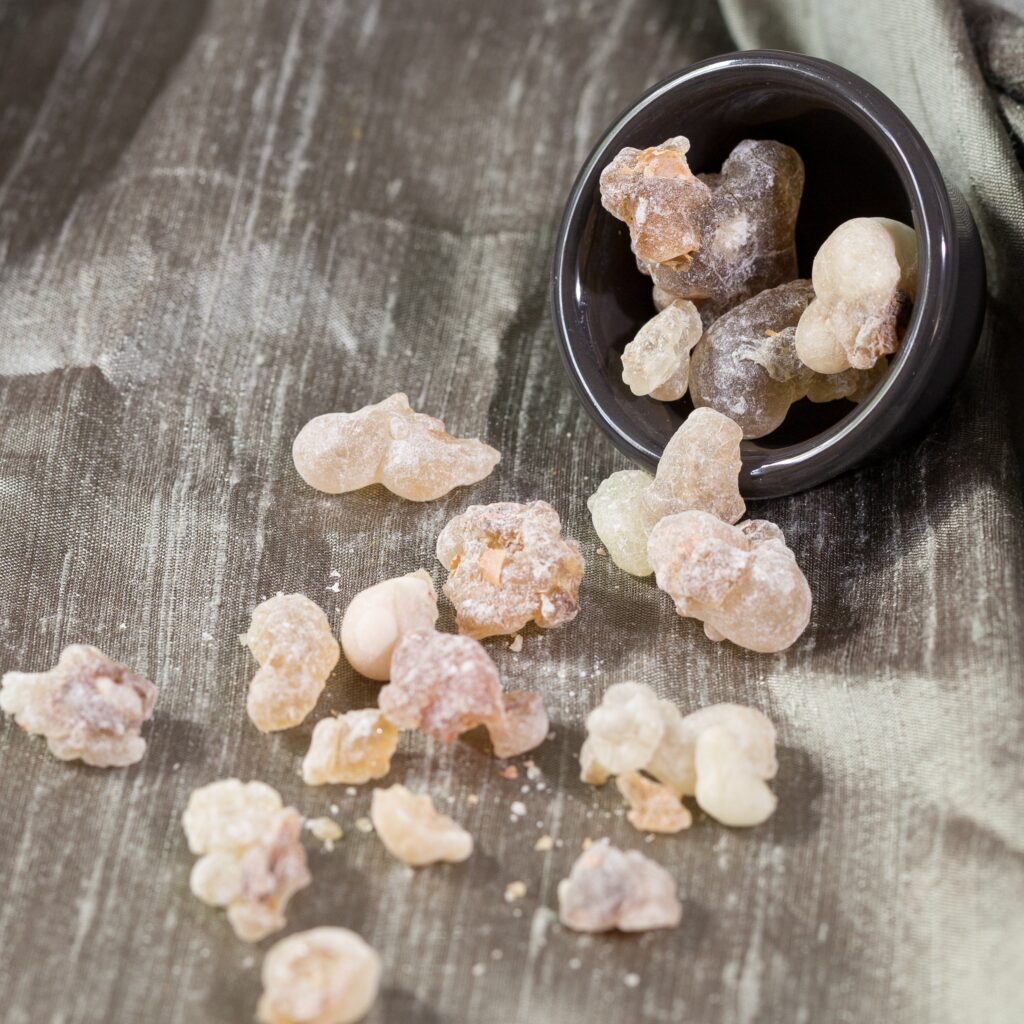
Gifts for a King
My mother has a beautiful set of red velvet-lined Christmas trinkets. One contains gold, one frankincense, and the other myrrh. We recognize these as the gifts mentioned in Matthew 2:11. “On coming to the house, they saw the child with his mother Mary, and they bowed down and worshiped him. Then they opened their treasures and presented him with gifts of gold, frankincense, and myrrh.” “They” refer to the wise men from the East.
What use would an infant have for gifts such as these? They were gifts for a king. Precisely! All three gifts had great value and were intended to honor Jesus. It was customary in the ancient world to bring treasure gifts on royal visits. But one might wonder if these gifts carried a deeper meaning.

The Gift of Gold
Gold is mentioned early in the Bible in Genesis 2 with the Garden of Eden. “And the gold of that land [Havilah] is good.” The Bible often uses gold as a standard from which to measure: the judgments of the Lord are more desirable than gold (Psalm 19:10), faith is more precious than gold (I Peter 1:7), and the fruit of wisdom is better than gold (Proverbs 8:19).
As a preteen looking to make money, I helped with a yard sale, donating my sister’s amethyst ring. It was in my possession, and I had no need for it. Elaine was displeased, saying the ring was 14K gold. That’s when I realized “14K gold” must mean something. I sold the ring for probably $.50.
Gold was and still is a valued commodity. It was associated with royalty and nobility, representing wealth and prosperity. First Kings 10 tells about the Queen of Sheba visiting King Solomon. She brought with her “very much gold” to present to King Solomon after testing his wisdom.
Gold may also relate to the death of Jesus. The Temple walls and the altar of the Most Holy Place were covered in gold. The gold presented to Jesus may connect with the splitting of the curtain in the Most Holy Place, where the sacrifice of atonement for the sins of the people was given. When Jesus died on the cross, eternal atonement was made, thus eliminating the Holy of Holies.
The Gift of Frankincense
Years ago I bought a small chest of frankincense, curious about its contents. Frankincense is a gum resin shaped like a pebble. It comes from the sap of a particular species of tree. The resin produces a strong and pleasing odor. It is still widely used in the Middle East and Africa.

The ancient world used frankincense in the ceremonial worship of a deity. This is why it was a suitable gift for Jesus, with the prophets claiming him as a deity.
As with gold, frankincense may have been associated with the Temple worship and sacrificial offerings. Exodus 30 describes a specific recipe of spices to be burned at the altar. Pure frankincense was in the recipe. Since Jesus’ life was pure and sacrificed as a holy offering, frankincense was indeed a suitable gift.
Sidenote: I was once told that frankincense would repel fleas, so I made a solution and sprayed my dogs. I don’t know if it repelled fleas, but they smelled nice.
The Gift of Myrrh
Myrrh is also derived from the sap of a tree native to the East. In the ancient world, it found its way into perfumes, anointing oil, incense, and medicinal tonics. Myrrh was used in burial rituals. Nicodemus brought 100 pounds of myrrh and aloes to bury Jesus (John 19:39).
Genesis 43 mentions myrrh regarding Jacob, who told his sons to take “some of the best products of the land” to Egypt to present to Joseph. Psalm 45 describes the use of myrrh as a perfume on wedding garments.
Perhaps the myrrh from the wise men was indicative of the role Jesus would have through his death to save humanity. A Temple connection is evident. Myrrh was the main ingredient in anointing oils used to prepare the priests before sacrifices were made. Instruments, the altar, and the Temple were anointed with oil. No wonder myrrh was presented to Jesus.
Speculative Use and Interpretation of the Gifts
Money from the gifts may have been used to help Mary and Joseph escape to Egypt 100 miles away. Since they were of humble means, this is a reasonable explanation.
Maybe the gifts were only intended to pay homage to Jesus’ royalty, deity, and humanity, but the gifts may also reference global missions. Isaiah 60 says that “nations shall come to your light” and “they shall bring gold and frankincense, and shall bring good news, the praises of the Lord.”
We may not have gold, frankincense, and myrrh, but let us bring Him our gifts of adoration and worship this Christmas.
(Some information used from Scott James blog in 2021)
2 Comments
Leave a Comment
Follow This Blog
Ewe R Blessed Ministries / Karen O. Allen

Your Gifts For A King posting, Karen, sent me to my bookshelves for a fragile, dogeared novel that I have read time and again during the past 75 years. Back in the late 1940s Marianne, one of my Mother’s elementary school students, gave her Henry Van Dyke’s The Story of the Other Wise Man as a Christmas present. Our family read that book together each Christmas for several years until my brothers, sister and I scattered to Arkansas, Alabama, Delaware and Vietnam. After Mother’s death in 1986, the book fell into my possession and I have read it with a warm heart each Christmas season since. I have even considered turning it into one of my tellings for the Christmas season.
The short novel tells of Mage Artaban’s search for the King whose birth was announced by an unusual heavenly light; the Mage sets off on his search with three gifts: a sapphire, a ruby and a “pearl of great price.” The gifts, originally for the Newborn King, bring assistance and comfort, instead, to “the least of these” along The Other Wise Man’s lifelong journey for the Christ whom he finally finds at the time of His crucifixion.
Thanks, Karen, for stirring a host of tender, cherished memories. I will read Van Dyke’s book again Sunday afternoon: Christmas Eve.
Love your story. I remember your presenting it by memory to the church years ago. I was fascinated by your memory, the story, and your delivery.